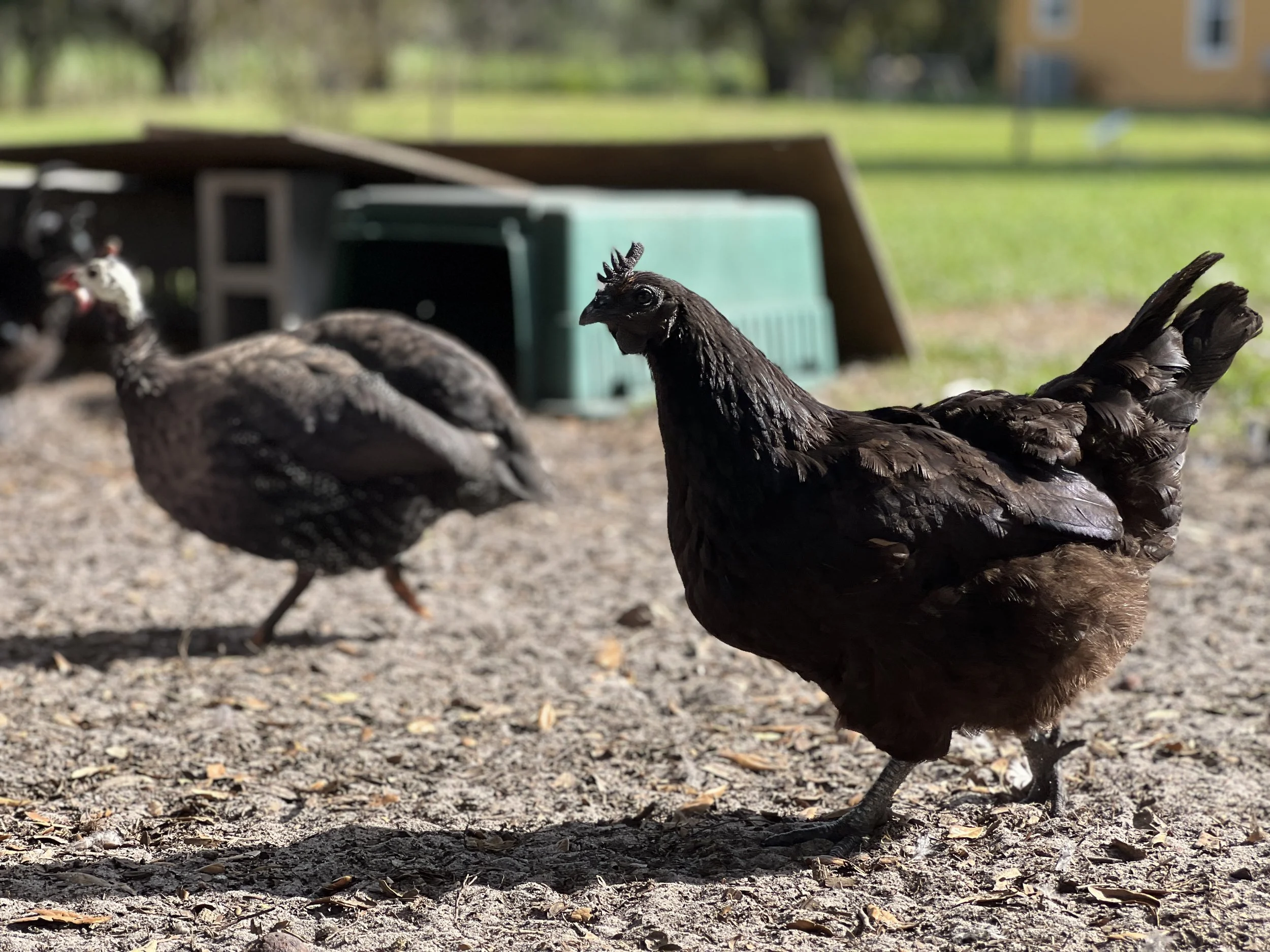The Ultimate Egg Showdown - Chicken vs. Guinea Fowl
Introduction
Hello, culinary adventurers! In today's exploration, we dive into the world of chicken and guinea fowl eggs. These two birds, while common in different parts of the world, offer unique characteristics in their eggs. Chickens are a familiar sight in many backyards, but guinea fowls, known for their distinctive calls and social behavior, are considered clean by biblical standards and bring a unique flair to the culinary scene.
Welcome to Thirty Oaks Ranch's insightful exploration, where we embark on a journey to compare two fascinating birds: the guinea fowl and the chicken. This introduction sets the stage for our in-depth comparison of their eggs.
Guinea Fowl: Africa's Poultry Gem
Origins and Versatility
Originating from the depths of Africa, guinea fowl are renowned for their robust nature and striking features. These birds have been integral to agriculture for their diverse roles, from laying eggs to natural pest control.
Cultural Relevance and Dietary Standards
Guinea fowl are revered in many cultures as 'clean' birds, fitting the dietary criteria outlined in religious texts like the Bible. Their natural diet and foraging habits have also earned them a spot in kosher food traditions.
Chickens: The Global Farm Favorite
Ubiquity and Utility
Transitioning from the exotic guinea fowl, we turn to the ubiquitous world of chickens. Originally domesticated in Southeast Asia and India, chickens have become a staple in both small homesteads and large-scale farms worldwide. They are celebrated for their consistent egg production and the broad appeal of their eggs, which have made them a cornerstone of many culinary traditions.
Egg Showdown: A Comparative Journey
As we transition from understanding these birds to focusing on their eggs, we'll delve into the differences in taste, texture, and culinary application. What makes chicken eggs a global staple, and how do guinea fowl eggs stand out with their unique attributes?
Nutrition: A Healthy Comparison
When it comes to nutrition, both chicken and guinea fowl eggs pack a punch. Chicken eggs are a well-known source of protein, vitamins, and minerals, essential for a balanced diet. Guinea fowl eggs, however, edge out slightly with higher protein and fat content, offering a richer energy source. They also contain a robust profile of vitamins and minerals, making them a nutritious choice for those looking to add variety to their diet.
Appearance: A Visual Feast
The appearance of chicken eggs varies, ranging from white to brown, and sometimes even speckled blue or green. They have a familiar oval shape and a smooth shell. In contrast, guinea fowl eggs are a bit smaller and more pointed, with a speckled pattern that's truly eye-catching.
Verdict on Appearance: Chicken eggs win for their universal appeal and versatility in color and shape.
Texture and Cooking: A Tale of Two Eggs
Upon cracking, chicken eggs reveal a familiar texture, with a proportionate yolk-to-white ratio. When cooked, especially on a grill like the Blackstone, they maintain their shape and cook evenly - ideal for various recipes. Guinea fowl eggs, with their richer, deeper-colored yolks and creamier whites, offer a more luxurious texture.
Verdict on Texture and Cooking: Guinea fowl eggs take the prize for their richer, creamier texture, making them a gourmet choice for cooked dishes.
Taste Test: Flavorful Finesse
Taste-wise, chicken eggs are the comfort food we all know and love - gentle, mild, and versatile. They fit into any recipe without overpowering other flavors. Guinea fowl eggs, however, offer a taste adventure. Their yolks are more intense, and the overall flavor profile is richer and more robust.
Verdict on Taste: Guinea fowl eggs win for their richer and more intense flavor, perfect for those who enjoy a stronger egg taste.
Culinary Verdict: Versatility vs. Gourmet Delight
In terms of culinary applications, chicken eggs are incredibly versatile, a staple in everything from baking to frying. Guinea fowl eggs, with their richer taste and creamier texture, excel in dishes where their distinctive flavor can shine, such as in rich baked goods or savory quiches.
Verdict on Culinary Use: Chicken eggs win for their adaptability in a wide range of recipes, while guinea fowl eggs are the gourmet choice for richer, flavor-focused dishes.
Conclusion
To sum up, both chicken and guinea fowl eggs have their unique charms and culinary strengths. Chicken eggs are the go-to choice for everyday cooking, offering versatility and a mild flavor. Guinea fowl eggs, on the other hand, are perfect for when you want to elevate a dish with their rich taste and creamy texture. Whichever you choose, both bring something special to the table. Happy cooking!






